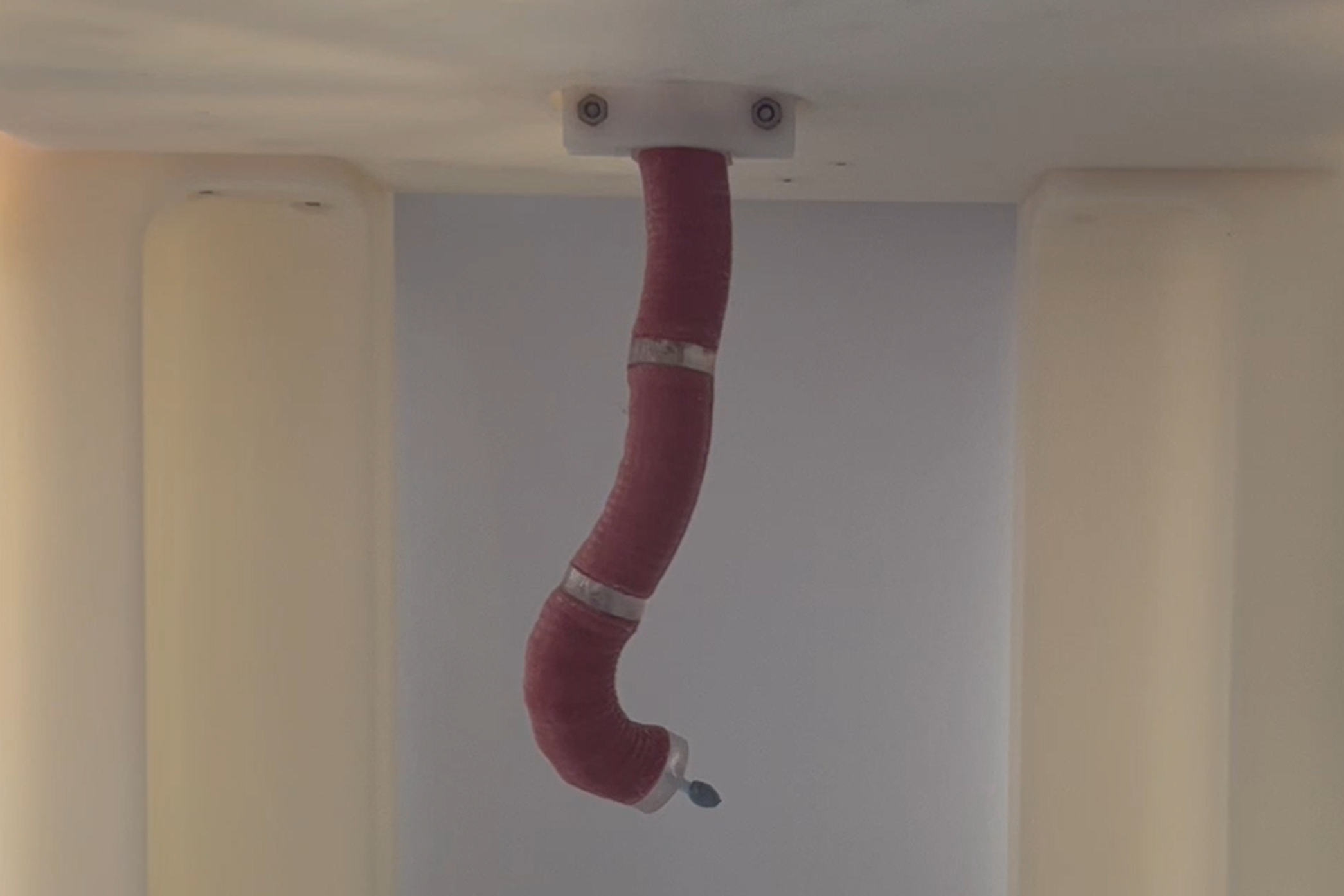Self-propelling robot endoscope ‘could make bowel cancer screening comfortable’
Scientists have created a new type endoscope that is soft, flexible, and capable of extending and curling inside the body on its own.

Your support helps us to tell the story
From reproductive rights to climate change to Big Tech, The Independent is on the ground when the story is developing. Whether it's investigating the financials of Elon Musk's pro-Trump PAC or producing our latest documentary, 'The A Word', which shines a light on the American women fighting for reproductive rights, we know how important it is to parse out the facts from the messaging.
At such a critical moment in US history, we need reporters on the ground. Your donation allows us to keep sending journalists to speak to both sides of the story.
The Independent is trusted by Americans across the entire political spectrum. And unlike many other quality news outlets, we choose not to lock Americans out of our reporting and analysis with paywalls. We believe quality journalism should be available to everyone, paid for by those who can afford it.
Your support makes all the difference.A soft robotic device that moves through the body like a worm could make bowel cancer screening much more comfortable by reducing pain and and discomfort, according to the scientists developing it.
Researchers at Imperial College London said they have created a new type endoscope that is soft, flexible, and capable of extending and curling on its own inside the body.
Around 900,000 colonoscopies – which involves an endoscope being passed through the bottom – are performed every year in the UK, the majority of which are for screenings for bowel cancer.
The procedure is invasive and more than 75% of patients develop significant pain, according to Nisha Patel, a consultant gastroenterologist at Imperial College Healthcare NHS Trust in London, who is running clinical trials with the device.
She said: “We know patients experience either discomfort or pain during the procedure and this affects uptake of further procedures and patient experience.
“There are reasons why people can be in pain – for example, if patients have had abdominal pelvic surgery and there is scarring inside, if they are older, or if they have certain diseases of the bowel, it can make colonoscopy painful.”
An endoscope is a long, thin tube with a camera at the end that is inserted into the body to check for certain diseases.
Ms Patel said compared to the robotic prototype, endoscopes currently used in clinical settings are relatively rigid.
She said: “You are essentially looking at a garden hose pipe versus an octopus limb.
“It (the robotic endoscope) is very soft, very pliable, and able to curl around corners.”
Ms Patel said patients are often put off by the procedure because they are worried about the soreness it may cause.
She added: “We often get people turning up shaking… they just say ‘I’m not having it done’.”
Nearly 43,000 people are diagnosed with bowel cancer every year in the UK, while around 268,000 people are living with the disease.
Bowel cancer is treatable if diagnosed early.
The NHS goal is to detect 75% of cancers early by 2028, so new technologies are needed
Along with a camera, the robotic endoscope also comes with a probe that can sample and analyse tissue as well as a small surgical laser which can remove tumours, making it a “one-stop device” to find and treat cancer at its early stages, according to the researchers.
Ferdinando Rodriguez y Baena, professor of medical robotics in the Department of Mechanical Engineering at Imperial College London – who led the team that developed the prototype, said: “Gastrointestinal cancers are the second cause of cancer death in the UK.
“Colonoscopy is at the core of the NHS screening programme, but demand is now outstripping supply.
“The NHS goal is to detect 75% of cancers early by 2028, so new technologies are needed.
“Different from conventional endoscopes, our system will not require push from the back, which is the main cause of patient discomfort during colonoscopies.”
The experts are also hoping that compared to current endoscopes, which requires specialist skills, their self-propelling robotic version will be easier to use and could, in future, be deployed in GP surgeries or outpatient clinics.
Ms Patel said: “In the development phase and early trials, a specialist would use this device.
“However, potentially its use could be in primary care as a comfortable procedure to perform outside a hospital setting which is also safe and effective.”
The robotic endoscope is among five other projects which have received £36.5 million investment from the UK’s Engineering and Physical Sciences Research Council.